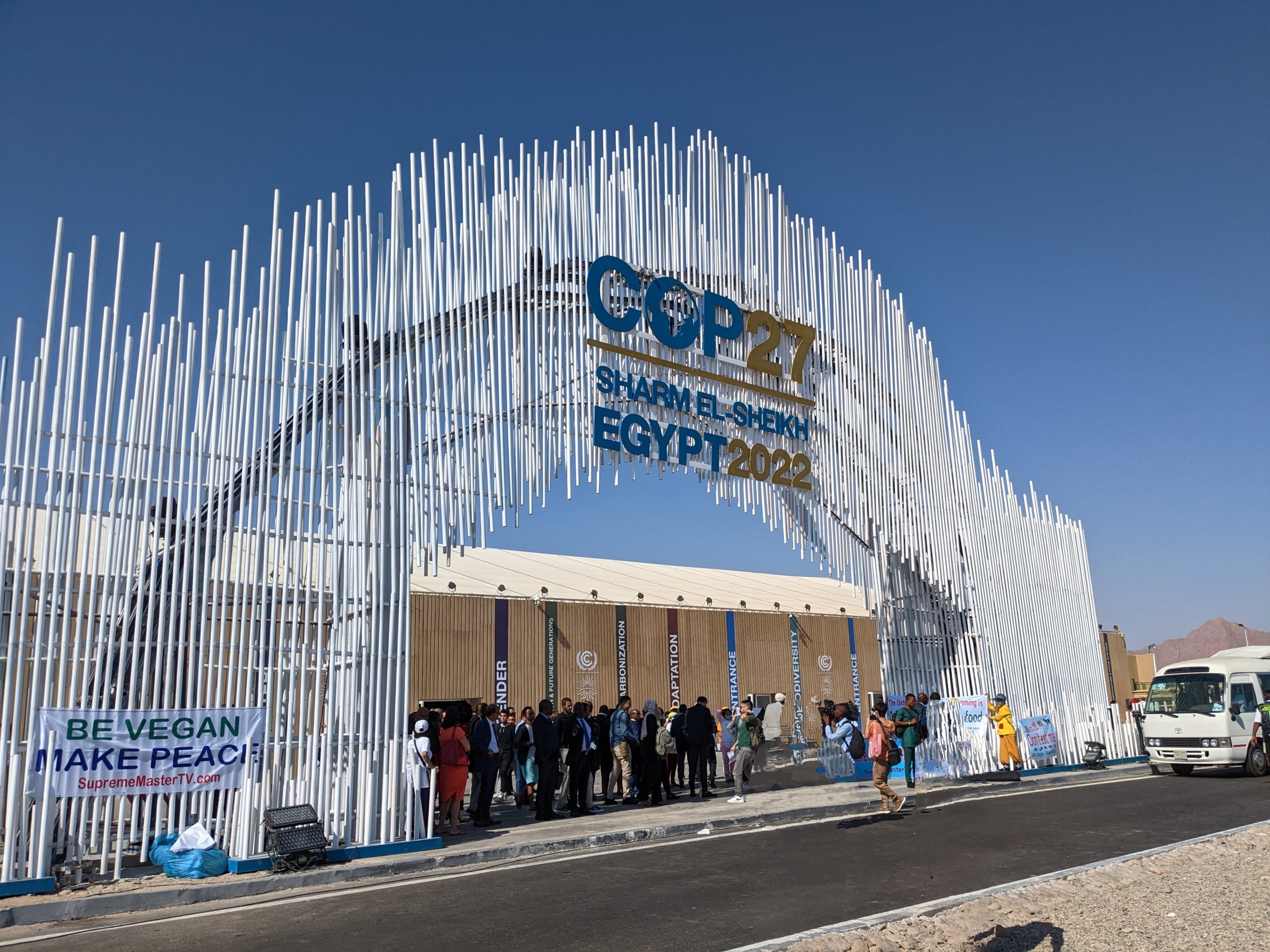
As has been extensively reported in the media, COP27 recently wound down with the resulting agreement being heralded as “historic” and a “step towards justice” due to its intention to create a financial mechanism to combat loss and damage. However, despite this notable victory, the result of COP27 was, like so many COPs before, far from perfect. People more informed and more experienced than I have already written thorough and informative analysis of the political and environmental outcomes of the COP as well as the implications of the agreement reached.
I felt both privileged and fortunate to have been present at the COP over its first week. I undertook to draft some “reflections” on my experience but quickly realized that reflections do not befit the COP. Our rapidly changing climate is a societal crisis that demands we look to the future. It is essential that we consider the needs of generations to come – youth, children and those generations yet unborn. We need to envision what a world with a healthy and flourishing environment looks like and what will enable that. We need to give thought to what resources are key to solving the climate crisis and how they can be most effectively distributed.
Of course, thought experiments aren’t going to win the fight against the climate crisis. We need technical solutions. We need increased financial flows as well as new and innovative financial mechanisms. We need increased moral and political will. We need to reduce and phase out fossil fuel usage. None of this is new, it has been known and articulated by many for years.
When we consider the resources, using that term in its broadest sense, needed to answer the climate challenge we also need to adopt a posture of inquiry. We need to question whether the governance structures we have – both national and international – are fit to confront the scale of the crisis unfolding before our eyes. We need to question whether the economic systems we have established and allowed to thrive are conducive to establishing a human civilization in harmony with the natural environment. We need to question how we can raise increasing levels of financing and channel it where it is needed most. We need to question what frameworks – moral, financial, technical, educational and more – steer society and how they can be refined and improved. We need to question why we have gotten to this point and why we aren’t doing anywhere near enough to avert the catastrophic future that the scientific community agrees awaits us in mere decades.
In my weaker moments, when I ponder the questions above, I lament how lackadaisical we have been and mourn the loss of an environmentally stable future. Alternatively, in moments of hopeful optimism, I look to a concept that is often surprisingly under discussed and underrepresented in the COP space – that of values. This is not to say that the COP is devoid of discussion of values. Indeed, a convening that seeks to offset the worst ravages of a changed climate must have some grounding in values. However, too often the language of values is retroactively applied to add a veneer of moral substance to decisions that have been reached through numerous rounds of political compromise and diplomatic expediency.
Critique is often easy. Outrage is satisfying to express but not always effective. Construction, effort, productivity, endeavor is challenging and require constant striving. Instead of endlessly critiquing the failings of our current systems, it may be helpful to begin to consider the values that should underpin the next few decades of human undertaking. How do we consider the role of, and need for, values as we start to grapple with how the global economy can empower and lift up everyone; how can we show due respect for the natural environment and help it heal; how can we build governance structures that serve and evolve to confront the challenges that humanity will continue to face; would the COP look differently if it sought to center values and principle as a mode of operation.
The presence – or absence – of values underpins so much of what we do as a world community. Arguably, valuing profit over planet has contributed enormously to the climate crisis. Alternatively, valuing justice and solidarity over national interest delivered the outcome of COP27. Of course, there is a difference between values – integrity, trust, dependability, transparency – and what we attach value to. We seem to have long ago figured out what value to attach to fossil fuels, minerals, labor and so on but struggle to understand the worth of values such as sacrifice, equity, justice and unity.
Fortunately, I am smart enough to know that I am not smart enough to tell you how we can accomplish this. But what I can tell you is that unless, and until, we embed values – our highest ideals as a race – into our various endeavors, we are liable to repeat the mistakes of the last two centuries instead of looking to the future and giving thought to how to evolve our various systems and institutions so they are fit for purpose. The climate crisis presents us with an opportunity for us to collectively learn about how we embed values and ideals in our national and global endeavors – how we can answer the moral deficits of recent human history by looking to our higher nature.


